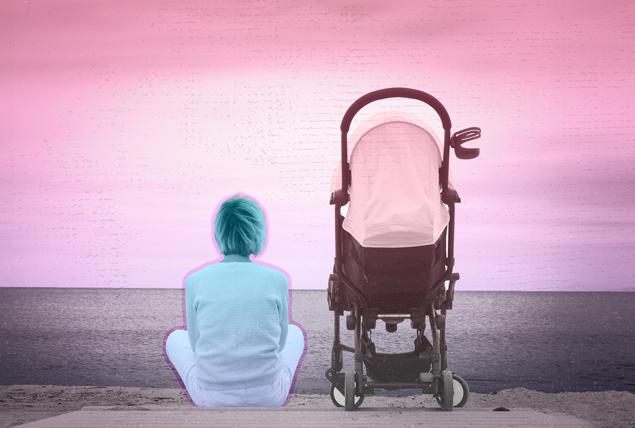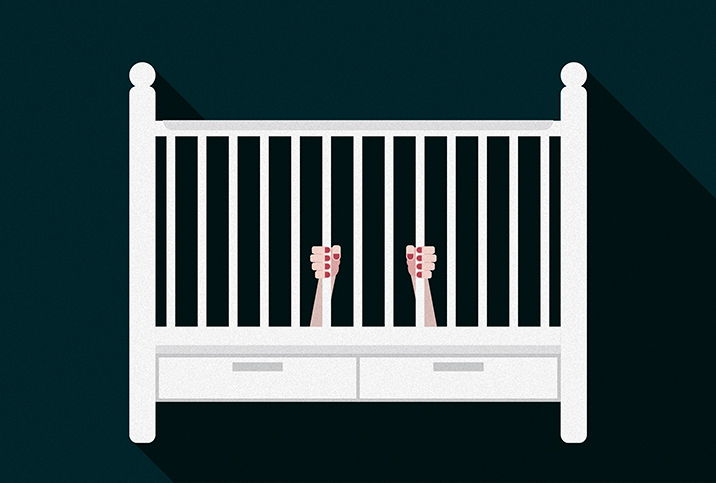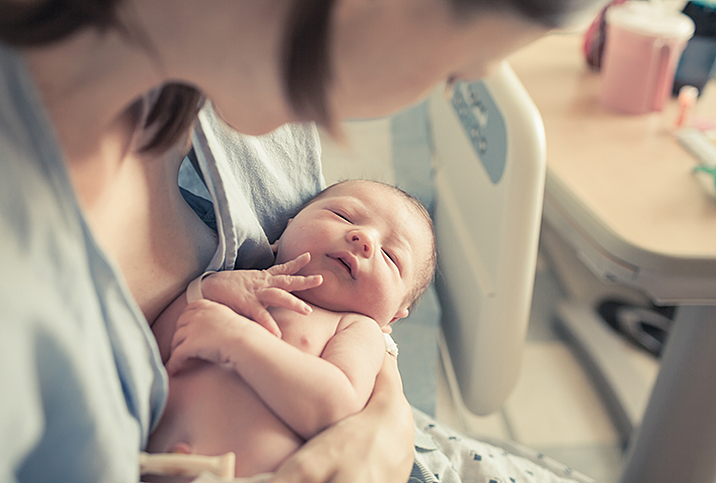Loneliness Plays an Important Role in Perinatal Depression

Even amid the fanfare and excitement of welcoming a new child, the transition to motherhood can be lonely. For some women, it can lead to mental health issues, such as perinatal depression.
Is perinatal depression common? It impacts an estimated 10 percent to 20 percent of new moms, according to Cleveland Clinic. The perinatal period spans from conception until up to a year after giving birth. So perinatal depression can include depression that begins during pregnancy (prenatal depression) and lasts until after the baby is born (postpartum depression).
Are feelings of isolation common?
More lasting than the baby blues, feelings of loneliness may remain after a woman has a baby. It's also common. An estimated 82 percent of new mothers under the age of 30 experience feelings of isolation, according to 2018 data from the Co-op and the British Red Cross.
Loneliness is a particularly prevalent experience in mothers experiencing perinatal depression, a mood disorder that occurs during or after pregnancy, according to a 2023 report in BMC Psychiatry.
Fears of being judged as a 'bad mother' led some to self-isolate and hide their depressive symptoms, further compounding feelings of loneliness.
"We know from previous literature that depression and loneliness go hand in hand. They're reciprocal," said study author Rebecca Nowland, Ph.D., a senior research fellow at the University of Central Lancashire in the United Kingdom who has long studied loneliness. "If you're feeling depressed, you can become, over time, more lonely. And if you're feeling lonely, you can become more depressed over time. So it's not surprising that perinatal depression and loneliness kind of have this reciprocal relationship."
What does the research say about perinatal depression and loneliness?
Until now, research exploring the connection between perinatal depression and loneliness was limited. Seeking to gain a better understanding of the role of isolation in the common mood disorder, Nowland and a team of researchers conducted a systematic review of studies on loneliness in the perinatal setting.
For the review, the research team analyzed the accounts of 537 women from 27 research papers across four continents.
Few studies focused specifically on the role of loneliness in perinatal depression, but loneliness loomed large in many women's accounts, researchers found. Participants reported feeling disconnected from their baby, their previous life and their identity.
"Having a baby is a period of huge transition and upheaval that can involve losing touch with people and existing networks, such as work colleagues," said lead author Kate Adlington, an academic clinical fellow at King's College London, in a press release.
In addition, many new mothers reported perceiving a societal stigma. Fears of being judged as a "bad mother" led them to self-isolate and hide their depressive symptoms, further compounding feelings of loneliness.
The researchers also identified a "double burden" of loneliness for mothers in marginalized communities—immigrants, minorities, teen mothers—due to preexisting social isolation.
"Parents who already feel very different to the people around them because of discrimination or because they've got children that have got disabilities are more likely to experience higher levels of loneliness," Nowland said.
What factors make perinatal depression due to loneliness worse?
The researchers determined that certain things make perinatal depression-related loneliness worse—including a lack of professional support and conflict and separation from their partner, families or communities.
On the other hand, the research team found that other factors—peer support from mothers with perinatal depression, practical and emotional support from their families, and validation from trusted healthcare professionals—alleviated feelings of loneliness.
"We found that healthcare professionals also have an important role to play in helping women to feel heard and validated in their experiences of loneliness," said study author Sonia Johnson, a professor of social and community psychiatry at University College London and a doctoral candidate. "Peer, social and family support are likely to be crucial in reducing perinatal depression."
What are the symptoms of perinatal depression?
"Perinatal depression symptoms include sadness, fatigue and anxiety," said Monte Swarup, M.D., an OB-GYN in Chandler, Arizona, and the founder of Vaginal Health Hub, who was not involved in the study. "Women with a family history of depression or who have experienced perinatal depression previously with a pregnancy are at highest risk."
He added that perinatal depression is caused by a combination of genetic and environmental factors. These can include stress or loneliness and hormonal changes.
Increased support from family and friends could be useful in reducing the impact of loneliness in mothers experiencing depression.
"It is not caused by anything the mother has done," Swarup said.
Mothers who are experiencing perinatal depression should seek peer and professional support, he said.
Nowland agreed, emphasizing the importance of connecting with people who share experiences similar to yours.
"If you've got a circumstance that might be different to others, look for groups of like-minded parents," Nowland suggested. "[For example,] look for groups for families with children with disabilities or groups for working parents. These might be more cathartic for you than just going to your local 'moms and tots' group."
Talk to your healthcare provider to find ways to treat your depression, such as talk therapy or cognitive behavioral therapy. If you have thoughts of harming yourself or your baby, call 911 for help. It could be a sign of postpartum psychosis, a dangerous health condition.
How can you support a new mother experiencing loneliness?
For friends and family seeking to support new mothers experiencing loneliness and depression, Nowland said positioning yourself as an eager, empathetic ear is a key first step.
"There's a perception that other people might reject us or be very negative about our experiences if we say we are feeling lonely," Nowland said. "We need to think about ways to sensitively ask somebody about how they're feeling and how they're finding the transition to parenthood."
As a practical tip, Nowland suggested offering to accompany a new mother to a support group.
"It's really hard for somebody to physically go to a group when they feel isolated and lonely," Nowland said. "It's quite a socially anxiety-provoking thing, so to go with somebody to a group can be really helpful."
Johnson echoed the idea that increased support from family and friends could be useful in reducing the impact of loneliness in mothers experiencing depression.
"But there is a lot more to be done to understand why loneliness is so important in the perinatal period and to develop effective ways of preventing or reducing it," Johnson said.
The bottom line
Many new mothers are lonely, and that loneliness can lead to perinatal depression, according to the study. Look for groups of like-minded people in your community that fit your family. Don't be afraid to venture out and meet new people.
Even walks in nature can help improve your mood and fight depression.


















